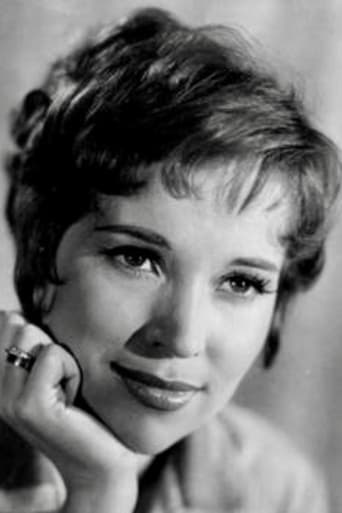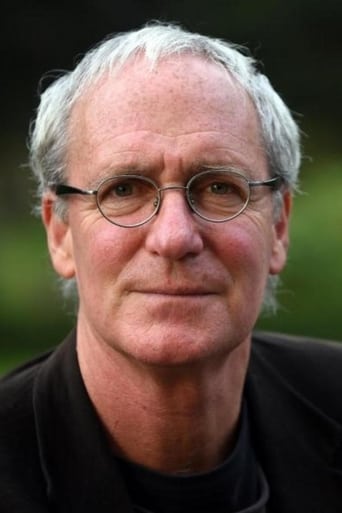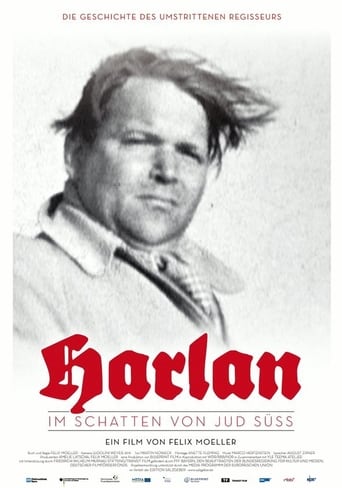
Though almost forgotten today, Veit Harlan was one of Nazi Germany's most notorious filmmakers. His most perfidious film was the treacherous anti-Semitic propaganda film Jud Süß - required viewing for all SS members. This documentary is an eye-opening examination of World War II film history as well as the story of a German family from the Third Reich to the present; one that is marked by reckoning, denial and liberation.
Similar titles
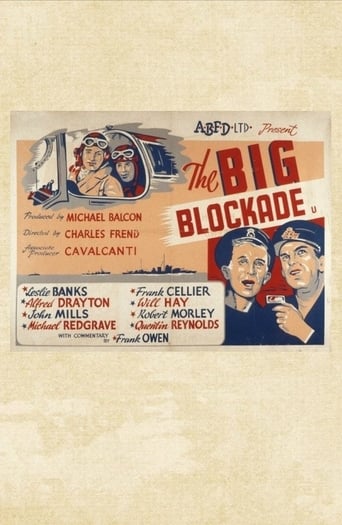
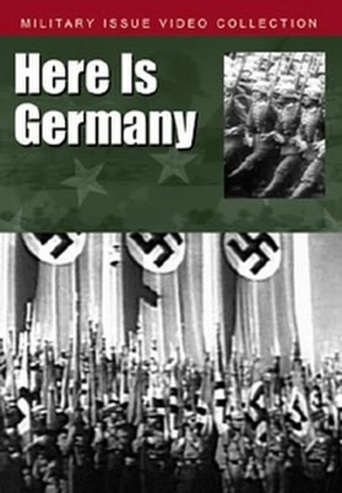
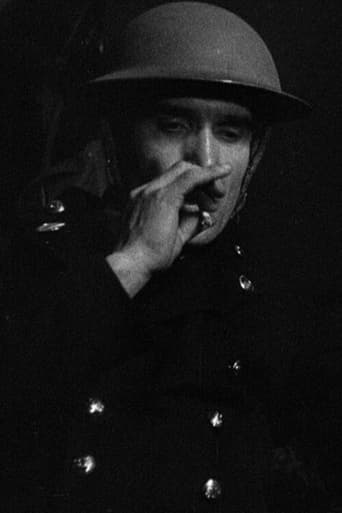


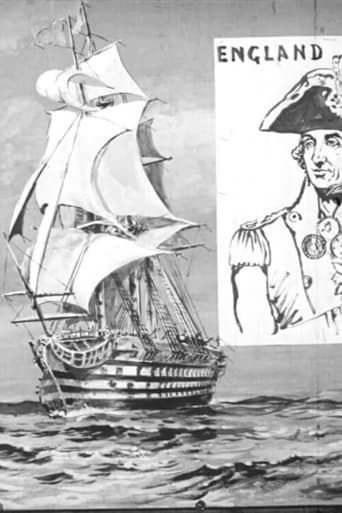

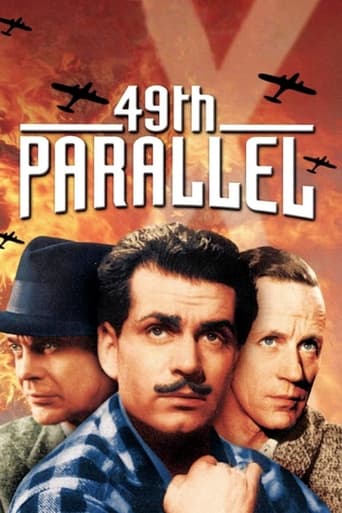
Reviews
Thanks for the memories!
This story has more twists and turns than a second-rate soap opera.
A movie that not only functions as a solid scarefest but a razor-sharp satire.
Let me be very fair here, this is not the best movie in my opinion. But, this movie is fun, it has purpose and is very enjoyable to watch.
"Harlan - Im Schatten von Jud Süss" is a German-language 100-minute movie from 8 years ago. It is probably the most known work by writer and director Felix Moeller. The topic here is the title character: Veit Harlan, a German filmmaker during the days of Nazi German back in the 1930s and 1940s. What Leni Riefenstahl was for documentaries is what Harlan was to fiction films and probably in an even more serious way as he is the filmmaker behind the most infamous Nazi propaganda movie "Jud Süß" that was ordered by the German government in their attempts to make Jews look like the evil guys in order to push their ways of killing millions of Jews in concentration camps and get the support from the people for their genocide.In this documentary here, we find out mostly how Harlan's children and grandchildren see their ancestor today with all they know about him. Some are critical and put the blame on him, some seek to justify, other prepare not to say a whole lot at all. Overall this was a pretty good documentary that is worth seeing for everybody with an interest in the years of Nazi Germany. I believe, however, it is absolutely essential to be aware who Veit Harlan is and you probably either should have seen "Jud Süß" to understand the context or at least know a lot about the film. The scenes from the movie in this documentary help for sure, but I don't think they are sufficient to help people understand the context completely if they are not aware with the film "Jud Süß" or the director Veit Harlan. But then again, why would they this documentary if they don't care about the subject. I personally enjoyed this more than the Tobias Moretti movie as it is so close to Harlan's family and their insights add a lot more than any expert could due to their family history background. A well-crafted work. Go see it.
HARLAN IN THE SHADOW of JEW SÜSS Viewed at LA Jewish Film Festival, 2010 by Alex Deleon-Pevner.Though almost forgotten today, Veit Harlan was one of Nazi Germany's most notorious filmmakers. His most famous film was the venomous anti-Semitic propaganda film Jud Süss (1940) -- required viewing for all SS members during the Nazi era. First off it needs to be made clear that this new documentary is not be confused with the German dramatic feature, "Jud Suess – A Film without a conscience" -- which was premiered at the Berlin Film Festival earlier this year. "Jud Suess" (A film without a conscience) is basically a fictionalized docu-drama focusing on Ferdinand Marian, the actor who (perhaps unwittingly) played the Jud Suess title role in the original Nazi propaganda film, and director Veit Harlan is a secondary character here. Both Veit and Marian are, of course, played by contemporary German actors. The new documentary zeroes in on the director himself, Veit Harlan, with various swatches of archival footage of him and his associates included -- but it is primarily about the legacy of guilt feelings passed on to his progeny right up to the present. Some illustrative scenes from the 1940 rabidly anti-Semitic "Jud Suess" are shown, but most of the film centers of interviews with the direct descendants, children, grandchildren, nephews and nieces, of the notorious director who was indicted for war crimes immediately after the war, but was twice acquitted by a "friendly" (i.e., Nazi sympathetic) judges. Harlan continued to make films after the war and never apologized for his key role fostering the intense racist policies of Goebbels and the Nazis, but various excuses have been made for him, such as that he was not really an anti-Semite but rather an opportunist who made the films offered him under the Nazi regime "as best he could". One son however, violently disagrees and became such a hater of his father's Nazi collaboration that he has devoted his entire life to exposing it over and over in every way possible. Another son has no such qualms and claims that nobody has a right to ask him how he felt or feels about his father — a hard one to argue with. A grand daughter raised in France and speaking in French admits she has always been somewhat ashamed to be identified with him. A nephew living in Capri, Italy, where Veit died and was buried, takes the guarded view that his uncle was basically an artist who merely "got carried away a little". A daughter, Maria Koerber is an actress who took her mother's last name to avoid the indignity of carrying the Harlan name around with her and makes no bones about her disgust with Harlan's activities. Most peculiar of all is the testimony of Christiane Kubrick, (birth name Christianne Susanne Harlan, born 1932) who is a niece of Harlan's and the widow of the late American movie director Stanley Kubrick! -- She also takes the shaky position that Veit was more of an artist than a Nazi per-se, and claims that Stanley always wanted to make a film about her uncle working in Nazi Germany, but never quite got around to it. Too bad — that would have been something to see!All in all, Felix Moeller's film is less about Harlan than about his immediate descendants and the burden of guilt they bear (or do not bear) up to the present day half a century after the director's death. Mr. Moeller spent a lot of time tracking these people down and getting them to talk to the camera about their feelings, being the progeny of a man who, whether he was a card-carrying member of the party or not, unquestionably made a major contribution to the extermination of the Jews. What comes out is an amazing spectrum of commentary: defensive, offensive, tentatively neutral, anger, excuses, leave-us-the-hell- alone, silence, befuddlement, sorrow, who cares anyway — just about every kind of response one can imagine under the circumstances. Director Felix Moeller has a certified filmmaking pedigree, being the son of outstanding German director Margarethe von Trotte and has made a number of other bio- documentaries, but this one is very special in that it amounts to a depth probe into the collective psychology of an extended German family with a rich Nazi pedigree which, in passing, can easily be seen as the reflection of the mixed feelings regarding the legacy of the Third Reich that still float about in the collective unconscious of Germans today. Kudos, Herr Moeller. Too bad your film was not seen by more people (Jewish and Non- Jewish) here. Chaim Pevner; (Alex Deleon) Miracle Mile, L.A. May, 2010
Had this documentary only been about Veit Harland and his infamous film "Jud Süß", it would have been well worth seeing. However, the film goes one step further--and that makes it such a memorable film."Jud Süß" was a virulent anti-Jewish propaganda sponsored by the Nazis and shown throughout Germany and occupied Europe. Its aim was to galvanize the populace against the Jews and thereby make it easier to exterminate them. This film shows a few clips from this film and the first part is a biography about the director, Veit Harlan. It talks about his life and career before making this film as well as after--and especially about the repercussions in his life following the war because of his pro-Nazi work.All this is very interesting. However, what makes the film much more interesting is that the people who made the documentary were able to assemble so many family members to talk about Veit and his work. His surviving children and grandchildren are interviewed and their reactions are varied and extremely interesting. Some, such as one of his sons, were very close-mouthed--refusing to say anything against their father. However, this was the exception to the rule. Most seemed open to talk and what really fascinated me were the lengths to which several of them went to change their lives in an attempt to undo or make recompense for Veit's actions. Two daughters married Jewish men, a son married a Jewish woman. This same son went from the far-right fascism to an ardent anti-fascist--even ultimately embracing communism! And his grandkids weren't exempt from the impact of Veit's life upon them--with one granddaughter now living in France and dealing with strong feelings of guilt and shame. Many more interesting interviews and personalities are in this film--and it's filled with wonderful psychological portraits that would merit re-watching. Exceptional and truly fascinating.
This eagerly anticipated 2008 documentary is a disappointment. Although offering information about a dedicated craftsman, it fails to give a comprehensive overview of Veit Harlan's life or a clear outline of his relationship with the studio bosses. A series of interviews with his wife, children and grandchildren elicits confusing details which this viewer struggled to put into chronological order. The director, or editors, seemed to enjoy withholding details about the different members of Harlan's extended family, the way William Faulkner holds back information about his anguished Southern families.The Harlans comprise diverse and complex personalities - architect, actors, investigative journalist, painters - and, as highly intelligent and well-educated personalities, they presented diverse interpretations of their father's or grandfather's character and career. These figures provided more substance to the narrative than the intermittent story of Veit Harlan himself.His allegedly infamous film "Jud Suss" seems very tame when judged by the sequences shown. Although the work of a craftsman, its melodrama is antiquated; and it might be time to remove it from the historical spotlight and consign it to "strictly film school". Clips from his other films make Harlan appear more interesting and innovative.
Top Streaming Movies














